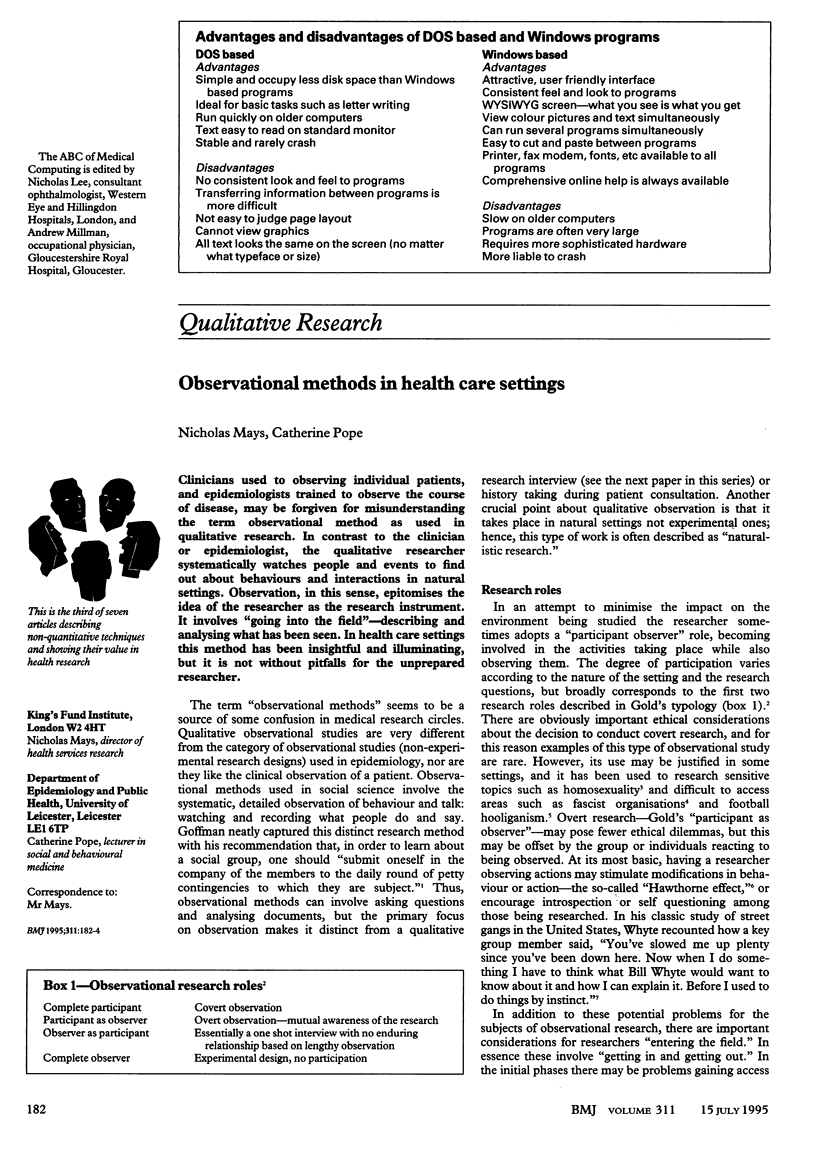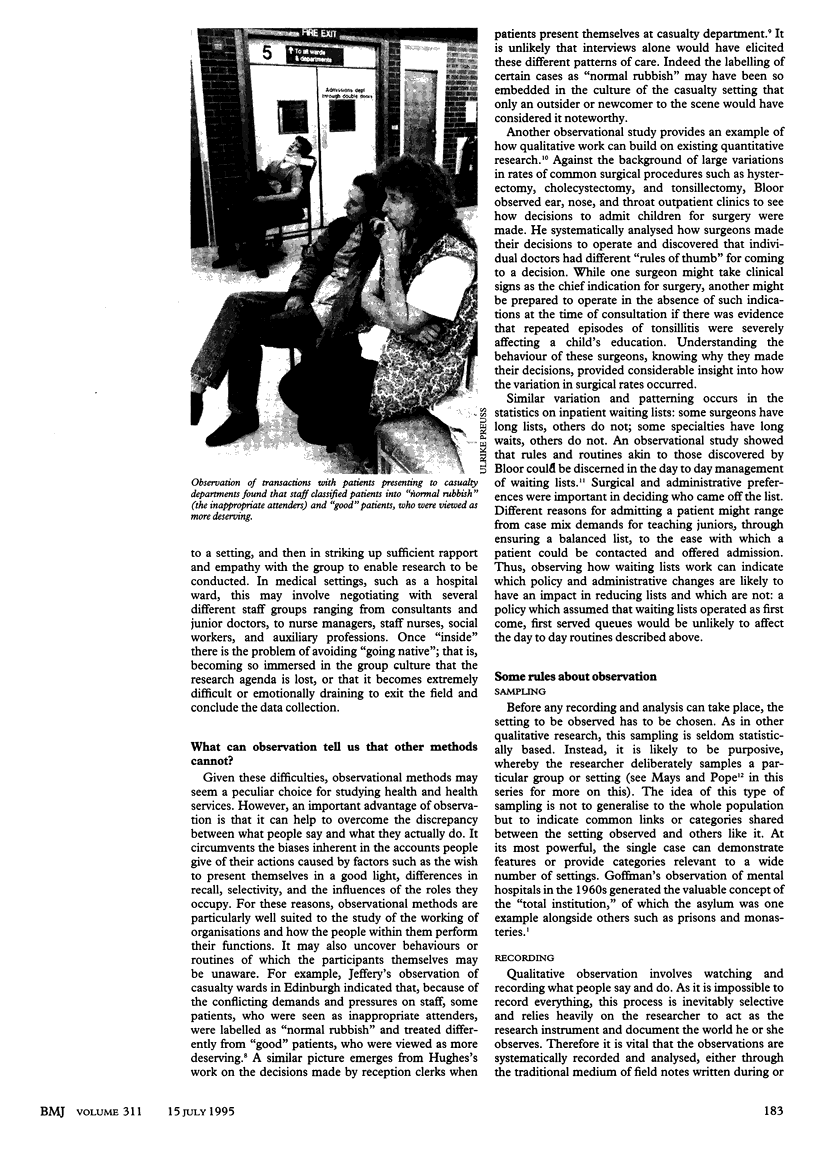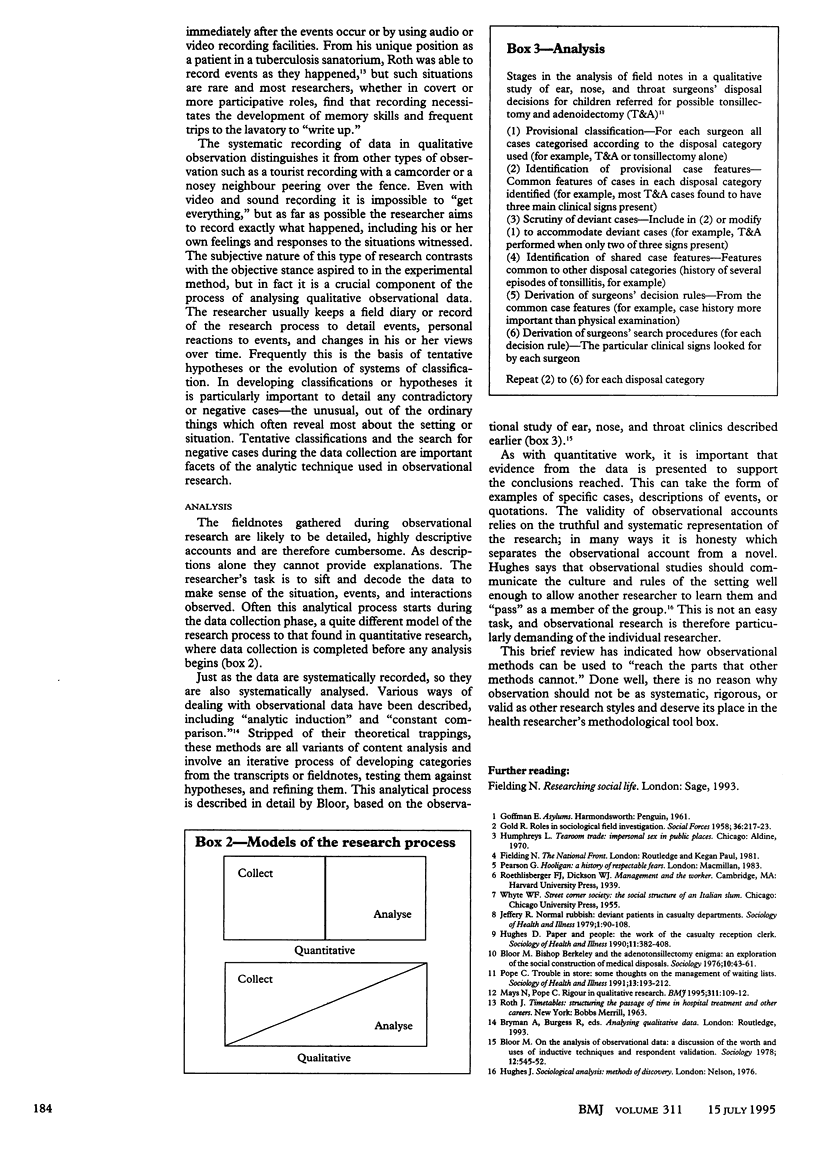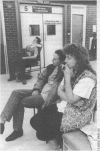Abstract
Clinicians used to observing individual patients, and epidemiologists trained to observe the course of disease, may be forgiven for misunderstanding the term observational method as used in qualitative research. In contrast to the clinician or epidemiologist, the qualitative researcher systematically watches people and events to find out about behaviours and interactions in natural settings. Observation, in this sense, epitomises the idea of the researcher as the research instrument. It involves "going into the field"--describing and analysing what has been seen. In health care settings this method has been insightful and illuminating, but it is not without pitfalls for the unprepared researcher.
Full text
PDF


Images in this article
Selected References
These references are in PubMed. This may not be the complete list of references from this article.
- Hughes D. Paper and people: the work of the casualty reception clerk. Sociol Health Illn. 1989 Dec;11(4):382–408. doi: 10.1111/1467-9566.ep11373441. [DOI] [PubMed] [Google Scholar]
- Jeffery R. Normal rubbish: deviant patients in casualty departments. Sociol Health Illn. 1979 Jun;1(1):90–107. doi: 10.1111/1467-9566.ep11006793. [DOI] [PubMed] [Google Scholar]
- Mays N., Pope C. Rigour and qualitative research. BMJ. 1995 Jul 8;311(6997):109–112. doi: 10.1136/bmj.311.6997.109. [DOI] [PMC free article] [PubMed] [Google Scholar]



